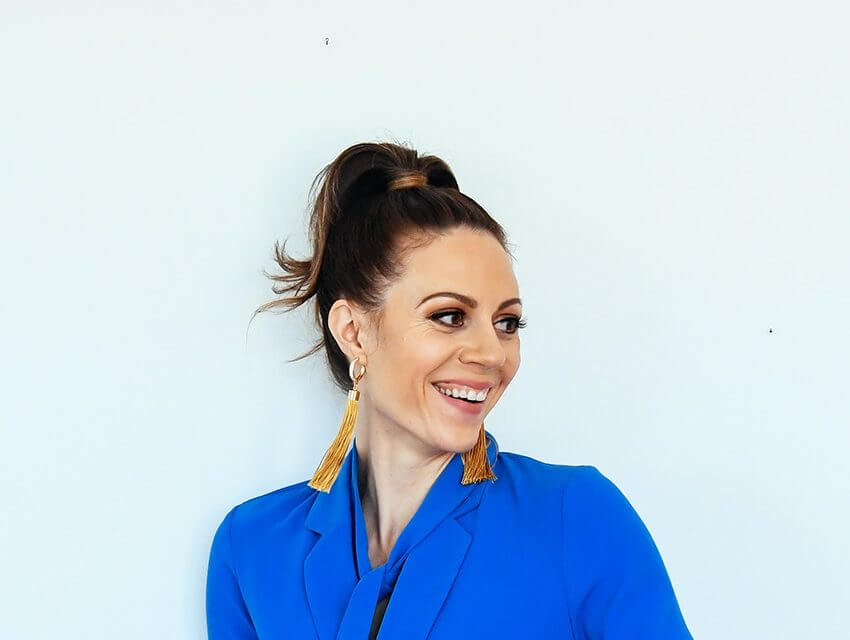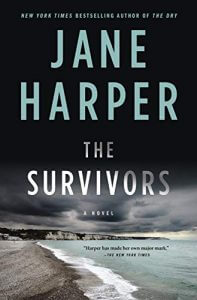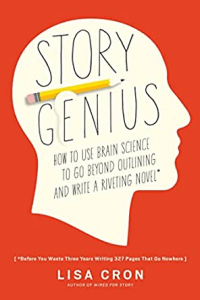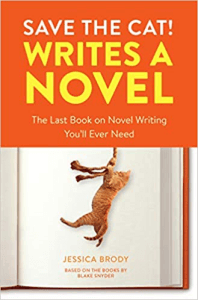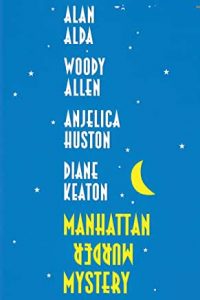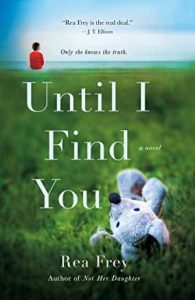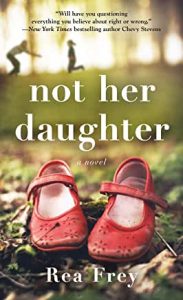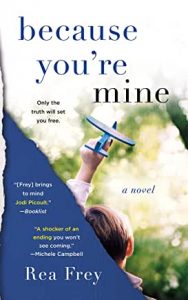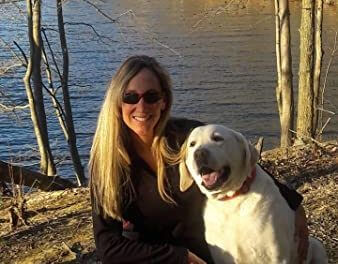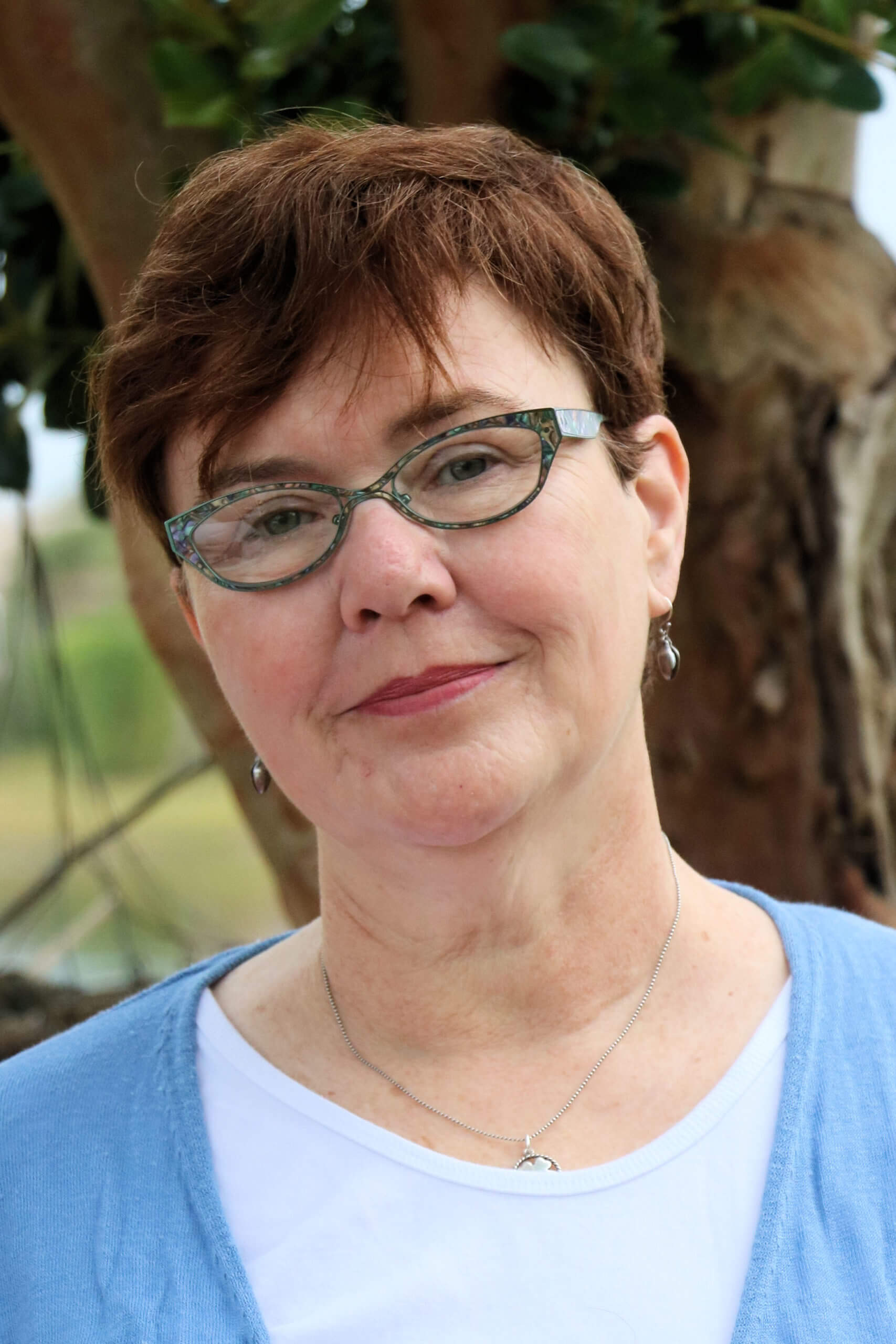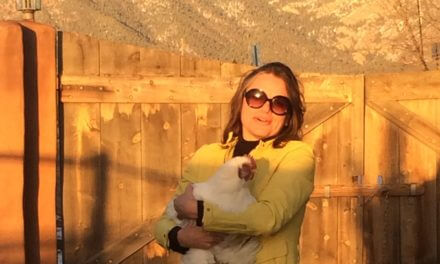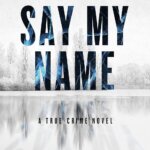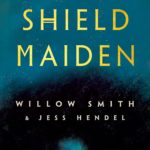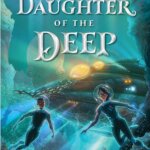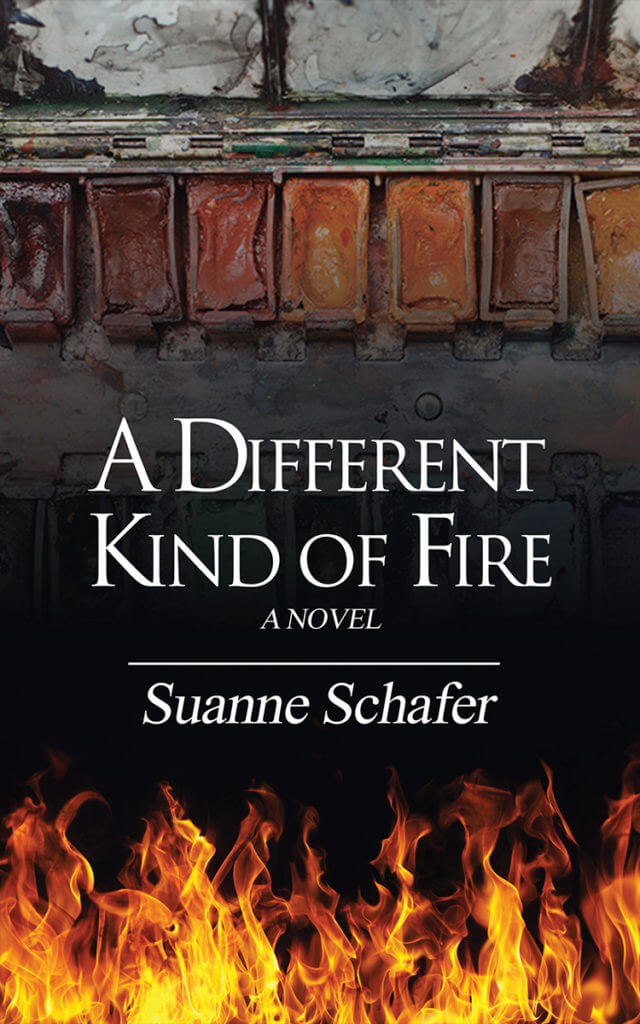Visiting with me in a safe distanced interview is Rea Frey. Rea is the celebrated author of Not Her Daughter, Because You’re Mine, and Until I Find You as well as four nonfiction books, so she’s been around the publishing block. Her passions include telling stories, but she’s also the founder and CEO of Writeway, where aspiring writers become published authors.
SS: Rea, what did you want to grow up to be as a child? Has that child’s desire appeared in your work?
RF: I wanted to be an Olympic gymnast. Or a veterinarian. That hasn’t manifested in my work, but it has definitely transferred over to my very active eight-year-old daughter who never stops flipping on furniture or proclaiming that she’s a pony.
SS: Have you always been driven to write? Or did you begin writing in response to a particular stimulus?
RF: I found the love for words young, thanks to my father. He taught me to read using the good old TV Guide and highlighting words in the dictionary. I started writing stories and poetry from a young age. After a trauma at fifteen, I turned to poetry as a way to heal. I found such power in words, in how they could transform an emotion into something else entirely. I loved letter writing and journaling as well.
SS: What’s the first book that made you cry? Made you angry? Made you rejoice?
RF: The Color Purple by Alice Walker is still one of my favorite books. The language, the plot, the characters, the ugliness, the injustice, the crimes, the passion … every page of that book is a heartbreaking masterpiece.
SS: Did anything in your past push you to write about your book and the conflict(s) in it?
RF: I’ve always struggled with my eyesight. As a gymnast and a boxer, my eyes have seen their fair share of trauma. I wanted to create a story around a protagonist with a disability and then challenge myself as a writer to NOT rely on my sight to tell the story … it was definitely a challenge.
SS: When I read Until I Find You, I was impressed by how deftly you handled Rebecca’s unique situation. Writing is undoubtedly a lonely occupation. John Green (The Fault in Our Stars) says writing is a profession for introverts who want to tell you a story but don’t want to make eye contact while doing it. P. D. James (Cover Her Face) says it’s essential for writers to enjoy their own company. Do you see yourself along those lines? Are you a natural loner?
RF: I was a natural loner until I became a mother. Then I found myself desperate for the company of other women. When I became a published author, I actually loved being around groups of people and standing in front of crowds. I was horrified to discover I MIGHT be part extrovert! Now, after COVID, I have returned to that natural loner state, but it’s been a welcome return to create a deeper relationship with myself. The solitude this last year has been an absolute gift.
SS: Do you have a day job? If so, is it a distraction, or does it add another element to your writing?
RF: I am the CEO and founder of Writeway, which helps aspiring writers become published authors. I have always loved helping authors on their path to publication and share what I’ve learned throughout this process. While the bulk of my creativity goes to my clients, I find that I learn so much from them, just as they learn from me. I make “seasons” for my writing and feel so lucky that I get to spend all day everyday with other people’s words or my own.
SS: How does your home and its environment influence your writing? To what extent?
RF: Well, in 2020, in an effort not to murder my entire family, I spent $10,000 on a modular tiny home, dropped it in the back of our acre lot, and carved out a space specifically for ME. It has been an absolute game changer to walk into a space that is completely mine.
SS: If you have children, does being a parent influence your writing? To what extent?
RF: Being a writer with children is like trying to concentrate while living with a one-woman sorority. Screaming. Tantrums. Messes. Constant interruptions or distractions…there’s never a dull moment. But my daughter is the sole reason I write. I constantly focus on mother-child relationships, dissecting, unraveling, and trying to understand that bond and the many tragic ways it can be broken.
SS: Do you generally write in one genre? If so, what is it? And what can readers expect from one of your books?
RF: When I sold my first book, Not Her Daughter, I had no clue that my genre was “domestic suspense,” as I didn’t even know that was a thing. Now, I understand that my books focus on relationships or family sagas or issues with suspenseful elements throughout.
SS: What epitaph would you want most to be written about you when it’s all said and done? What epitaph would you like at the end of your life?
RF: She loved what she shared, she shared what she loved, and she had a hell of a good time doing it.
SS: When you are creating a story, do you avoid reading books in the same vein so as not to be influenced by others, or do you seek out all possible variations for maximum inspiration?
RF: I like to read nonfiction when I’m writing suspense, so I’m not influenced by other authors in my genre. Then when I’m not writing suspense, I binge thrillers and try to study what they do and why.
SS: What writer would you be most thrilled to hear wants to meet you?
RF: Kristin Hannah
SS: What is your writing Kryptonite? What’s most likely to stop the flow of your words?
RF: My daughter, who loves to interrupt me every five seconds. Hence, the tiny home. She is not allowed to cross the threshold.
SS: Who do you most wish would read your book?
RF: See above. Kristin Hannah.
SS: What do you always want to talk about in interviews but never get to?
RF: That being published isn’t all sunshine and rainbows. I run a business for writers based on honesty and transparency, and I think it’s imperative to get everything out on the table. I love to talk about money. I love to talk about the highs and lows of being published. I love to talk about all the shit you’re not supposed to. It’s the only business I know where it’s still kind of “hush-hush” and private. I’m trying to change all that.
SS: How do you give back to the writing community?
RF: I give back to the writing community by getting my authors agents or book deals. There is nothing more thrilling than when a writer hires us to help edit or create a book proposal, and then that idea lands with an agent or publisher and finds its way into the world. There is no greater gift.
SS: Do you set daily writing goals? If so, what are they? How do you deal with failure to meet these goals?
RF: I am a very fast writer, but I’ve learned that with running a business, I have to have “seasons” of writing. So if I give myself a month of meeting 1500 words per day, that is a concrete goal. At the end of that month, I will have close to 50,000 words, versus saying I will write every day and then beating myself up if I don’t. I like smaller, micro-goals when writing. It helps me actually finish projects and then use the time I’m not writing to process.
SS: What part do your own fears play in your fiction?
RF: I write books that scare the shit out of parents because they all deal with worst-case scenarios. Kidnapping. Death. Baby swaps. I try to work out my worst parenting fears through my characters.
SS: Are you looking to entertain or illuminate?
RF: Illuminate. I love to make people question what they think they would do in any given situation. We are all capable of doing terrible things…or terrible things for good reasons.
SS: Do you believe you write the kind of book you’d want to read?
RF: Yes. This was such a great piece of advice given to me ages ago. Write the type of book you want to read. That never steers me wrong.
SS: According to F. Scott Fitzgerald (The Great Gatsby), a novel is never really finished but only abandoned. How does this apply to your own work?
RF: This is why I never revisit my work once it’s done! Once a book is written and sent out into the world, it no longer belongs to me. I can think about the characters fondly, but I know if I pick up that book, I will want to change everything. I think every writer grapples with the feeling of not really being done. It’s a curse and a gift.
SS: What are you most challenged by these days?
RF: Making time for my work, my own books, my daughter, my husband, my animals, my friends, my self-care, etc. There’s so much that goes into being a human these days…I’m trying to focus more on being versus having or doing. It’s a constant unlearning.
SS: What are you currently reading?
RF: Authentic Success by Robert Holden and The Survivors by Jane Harper.
SS: Do you read your book reviews? How do you deal with bad or good ones? Does a bad one affect your writing?
RF: I rarely read my reviews anymore, but I LOVE reading bad reviews. I know that sounds weird, but I find them so informative. I often give my nonfiction clients the advice to look up their competition, go to the one-star reviews, and search for any gaps or similarities as to why a writer doesn’t like a particular book. I think the same can be said for fiction. Sometimes, it’s really illuminating. Other times, it’s comical. I’ve secretly always wanted to do a collection of one-star quotes from famous authors across the country. Each page would be just a ridiculous one-star review. It makes me laugh just thinking about it.
SS: How did publishing your first book change your process of writing?
RF: I wrote my first book in a month and had a two-book deal. I had no idea what the second book was going to be about (or the third or the fourth), so it’s been a very different experience. My first book poured out of me. The last three have had deadlines and parameters. I’ve learned what the genre calls for and what my expectations are.
SS: What was your first recognition/success as an author?
RF: I landed a movie deal before my debut novel was published. That was pretty damn cool.
SS: Name five things you wish you’d known before you published your first novel.
RF: 1. That being published won’t fundamentally change you. 2. That you need to understand the ins and outs of the publishing industry before you enter into it. 3. That launching a book is so much harder than writing a book. 4. That you will sell every single copy of your book as the author. Just know that going in. 5. That this is a business and your book is a product; there’s an expense in that if you take it seriously.
SS: Who is the protagonist in your most recent work? Describe him/her in ten words or less.
RF: Rebecca Gray: A blind widow believes her son has been swapped for another baby. (That is more than 10 words. #sorrynotsorry)
SS: If you were describing your writing to someone who hasn’t read anything by you before, what would you say?
RF: It’s fucking awesome.
SS: What kind of research did you think you had to do? How much was actually needed?
RF: Writing about a blind protagonist took definite research! I talked to numerous vision-impaired individuals and even did some sensory deprivation myself.
SS: What advice would you give aspiring writers?
RF: Ask questions. Get to know the industry. Find your readers. Understand marketing and promotion. Define your goals and what you hope to achieve with a book.
SS: Are there any books on writing you find particularly useful and would recommend?
RF: Save the Cat! Writes a Novel and Story Genius.
SS: I love those two as well.
LIGHTNING ROUND:
SS: Describe your books in 3 words: Close your eyes.
SS: Another genre that you would love to write: True crime
SS: When writing, are you a night owl or morning person? Morning!
SS: Pantser or Plotter? Plantser (is that a thing? If not, I’m claiming it!)
SS: Your favorite guilty pleasure: Peanut butter and binging Netflix
SS: Number one book boyfriend or girlfriend is: Kristen Hannah (Do we see a theme, people???)
SS: What is your favorite thriller or mystery movie? Manhattan Murder Mystery
********************
Until I Find You, not her daughter, and because you’re mine are available through Amazon.
Until I Find You, not her daughter, and because you’re mine are also available through B&N.
